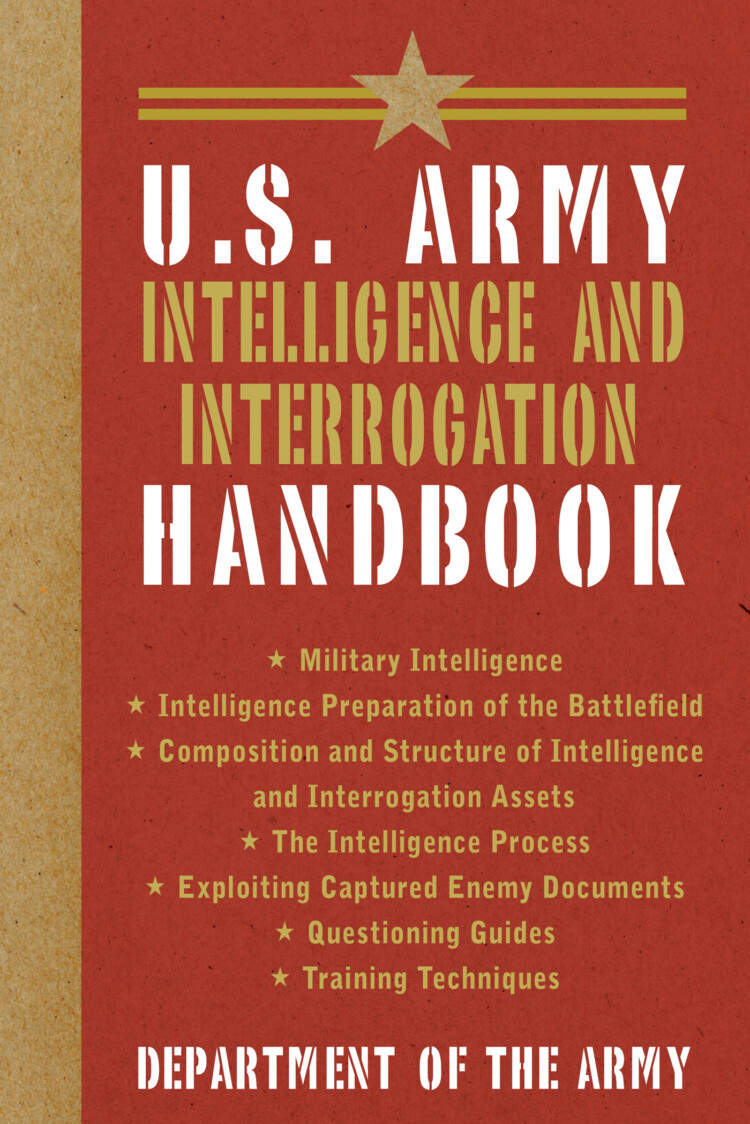Already have an account? Sign In
Two ways to continue to read this article.
Subscribe
$1.99
every 4 weeks
- Unlimited access to all articles
- Support independent journalism
- Ad-free reading experience
Subscribe Now
Recurring Monthly. Cancel Anytime.
The U.S. Army Intelligence and Interrogation Handbook provides doctrinal guidance, techniques, and procedures governing the use of interrogators as human intelligence collection agents in support of a commander’s intelligence needs. It outlines the interrogator’s role within the greater intelligence effort as well as the unit’s day-to-day operations, and includes details on how interrogators accomplish their assigned missions. This handbook is intended for use by interrogators as well as commanders, staff officers, and military intelligence personnel charged with conducting interrogations, and applies to operations at all levels of conflict intensity, including conditions involving the use of electronic warfare or nuclear, biological, or chemical weapons.
The U.S. Army Intelligence and Interrogation Handbook builds upon existing doctrine and moves interrogation into the twenty-first century within the constraints of the Uniform Code of Military Justice and the Geneva Conventions. Principles, guidelines, and topics covered include:
The definition of interrogation
Interrogator capabilities and limitations
Warfighting doctrine
The intelligence cycle, and its disciplines and operations
Amphibious and airborne operations
The interrogation process
Exploiting captured enemy documents
A tactical questioning guide
And many more tactics and techniques used by the U.S. Army!










COMMENTS